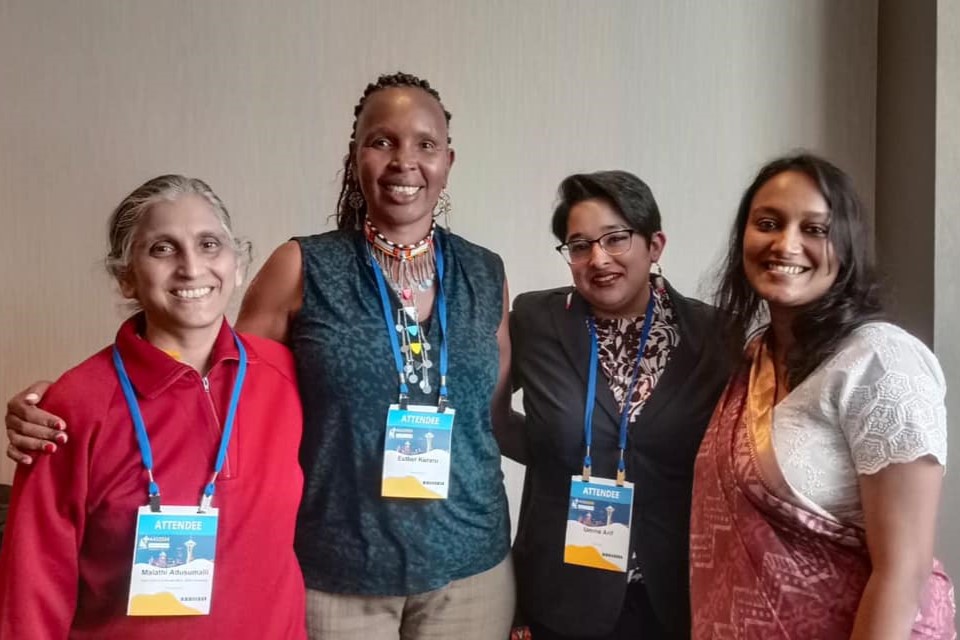This past March, Sahiyo had the honor of supporting Nevin Sutherland in attending the Association for Asian Studies 2024 Annual Conference. This annual conference focuses on facilitating conversations about and around Asian cultures. Nevin, a current PhD student at Delhi University, sought to highlight the issue of female genital cutting (FGC) in the hopes of sparking a larger discussion about how the practice is ongoing in many parts of Asia.
“As the daughter of a single mother and a PhD student, there's no way I would have been able to attend the conference and put together the panel without Sahiyo’s help,” Nevin said. “They gave me connections to the other panelists, and they also gave me a travel scholarship. This support allowed me to attend my first international conference and gave me more confidence in the work that I am doing.”
With Sahiyo’s support, Nevin assembled a panel of fellow Sahiyo volunteers and contacts to facilitate the discussion: Huda Syyed, Umme Kulsoom Arif, Esther Kenesoi, along with Nevin herself. Their goal was to educate the audience about the complexities and nuances of FGM/C in Asia, discuss how FGM/C in Africa often receives more worldwide attention, and explore the underlying gender and sexual politics that keep the practice alive in so many communities.
“Our panel was under the category of South Asian studies. We were placing FGM in the context of South Asia and comparing it with the practice in Africa. We wanted to look at how even now most of the FGM/C discourse is largely focused within Africa. We compared what the different dynamics are in African and Asian communities and how the practice affects Asian communities differently.”
The panel succeeded in sparking a conversation and engaging with the attendees, who asked a number of questions about FGM/C.
“After the initial panel discussion, the participants began a conversation about other forms of gender-based violence and how sexual politics precipitates GBV,” Nevin said. “We found that we all had something in common; We all had faced different forms of violence against women, especially in the context of human sexuality, in one way or another. We were able to find a degree of understanding in each other, even those who were not survivors were able to see on some level how FGM/C was a harmful violation of a woman’s body.”
That realization, in and of itself, was healing for many.
“The most fulfilling part of the whole discussion for me was at the end. One of the participants asked if we could have a group hug,” Nevin said. “It had been a pretty intense and emotional conversation, so everyone was feeling a lot. Everyone came together and we had this beautiful big hug, and there were a lot of tears. It was such a healing moment. It reminded me that the work to end the practice is really important, but the healing from it is equally as important.”
Sahiyo is thrilled to have helped Nevin bring this vital information to the Association for Asian Studies 2024 Annual Conference and we hope to continue supporting activists, academics, and all those who are fighting to end FGM/C.

